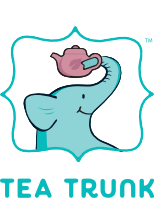
A lot of tea enthusiast I have met have asked me why isn't it good to add just some milk to tea.
Milk tea, a quintessential part of many cultures worldwide, has sparked a debate among enthusiasts and health-conscious individuals alike. For centuries, this creamy concoction has been cherished for its comforting warmth and soothing properties. However, as wellness trends evolve and nutritional awareness grows, questions arise about the health implications of adding milk to tea.
Proponents of milk in tea argue that it enhances the flavor and richness of the beverage. Traditionally, milk has been added to tea to mellow its bitterness, creating a harmonious blend of flavors. This practice has deep cultural roots, especially in regions like England, India, and Hong Kong, where tea consumption is a cherished ritual. Milk in tea is not just about taste; it's about tradition and heritage.
Moreover, milk can offer nutritional benefits. It adds calcium, protein, and vitamins to the tea, potentially boosting its nutritional profile. For individuals who struggle to consume an adequate amount of dairy, incorporating milk into their tea can be a convenient way to increase their intake of essential nutrients.
On the other hand, detractors raise concerns about the potential downsides of adding milk to tea. Some argue that the proteins in milk can bind to the beneficial antioxidants present in tea, reducing their absorption in the body. This could diminish the health benefits typically associated with tea consumption, such as improved heart health and reduced risk of chronic diseases.
Additionally, for those with lactose intolerance or dairy allergies, adding milk to tea can lead to digestive discomfort or allergic reactions. In such cases, alternatives like plant-based milk or enjoying tea without milk may be preferred to avoid adverse effects on health.
In conclusion, the debate over whether milk in tea is good or bad is nuanced and subjective. While milk adds a creamy texture and nutritional value to tea, it may also interfere with the absorption of antioxidants and pose challenges for individuals with dietary restrictions. Ultimately, the decision to add milk to tea boils down to personal preference, cultural influences, and individual health considerations. Whether you enjoy your tea black, with milk, or with a splash of alternative milk, what matters most is savoring the moment and appreciating the rich tapestry of flavors and traditions that tea brings to our lives.




1 comment on Milk in Tea: Good or Bad?